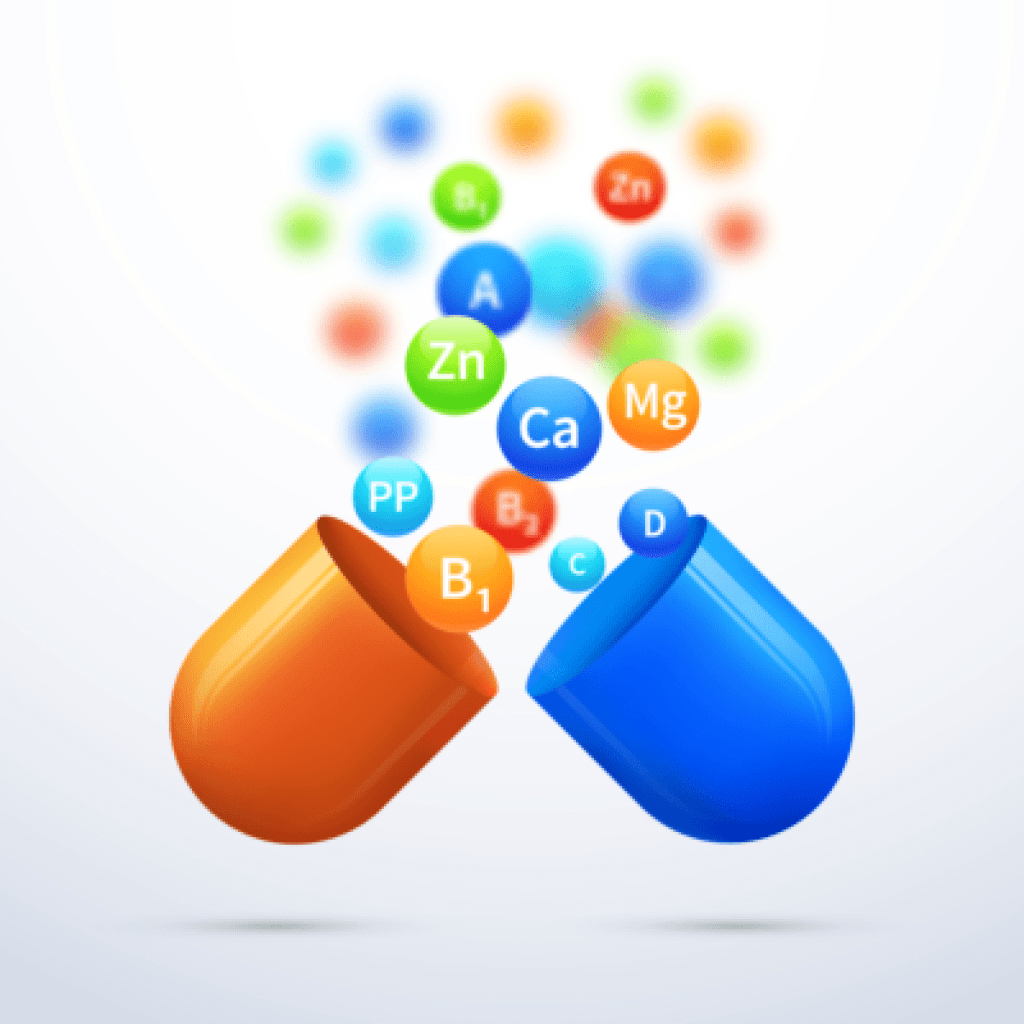As responsible horse owners and caretakers, ensuring that our equine friends receive a well-balanced diet that meets all their nutritional needs is crucial. Among the essential components of a horse’s diet are vitamins, which play a vital role in maintaining their overall health and well-being. We will explore the importance of vitamins in a horse’s diet and delve into the specific benefits of critical vitamins such as Vitamin A, Vitamin D, Vitamin E, and B vitamins. Additionally, we will discuss how to balance a horse’s diet to ensure proper vitamin intake.
Importance of Vitamins in a Horse’s Diet
Vitamins are organic compounds that horses require in small but significant quantities to support various bodily functions. These micronutrients are involved in cell growth, immune system regulation, energy metabolism, and maintaining healthy skin, coat, and hooves. At the same time, horses are remarkably efficient at synthesizing specific vitamins internally, while others are obtained through their diet.
To meet their vitamin requirements, horses primarily rely on forage, such as grass and hay, and concentrate feeds specifically formulated to provide balanced nutrition. However, factors such as the forage quality, the horse’s age, workload, and health status can impact their ability to obtain and utilize vitamins adequately. Therefore, horse owners must be mindful of supplementing their horse’s diet with the appropriate vitamins when necessary.
Vitamin A, for example, plays a crucial role in maintaining healthy vision, reproductive health, and immune function in horses. This fat-soluble vitamin is commonly found in fresh green forages. Still, its levels can diminish during hay storage, especially if hay is exposed to sunlight or stored for extended periods. In such cases, vitamin A supplementation may be necessary to prevent deficiencies that could lead to issues like night blindness or weakened immune responses.
On the other hand, vitamin E is a powerful antioxidant that helps protect cells from damage caused by free radicals produced during exercise or stress. Horses with limited access to fresh pasture or those in intense training programs may benefit from additional vitamin E supplementation to support muscle function and overall performance.
Understanding the specific roles of different vitamins and their sources can aid horse owners in formulating well-rounded diets that promote optimal health and well-being for their equine companions.
Vitamin A: The Key Benefits for Horses
Vitamin A is crucial for maintaining horses’ healthy vision, immune function, and reproductive health. It plays a critical role in supporting the integrity of the epithelial tissues, including the respiratory and digestive tracts and the skin and mucous membranes. Additionally, Vitamin A promotes normal growth and development in young horses.
Horses are typically able to convert beta-carotene—a pigment found in plants—into Vitamin A through enzymatic cleavage. However, some horses, particularly those with limited access to fresh, green pasture or impaired digestion, may require supplemental Vitamin A.
It is essential to stay within the recommended dosage of Vitamin A supplementation, as excessive levels can lead to toxicity.
Aside from its role in maintaining overall health, Vitamin A also plays a crucial part in horses’ visual cycle. It is essential for the proper functioning of the retina and low-light vision, making it particularly important for horses that are active during dawn and dusk, such as working horses or those used for evening events.
Moreover, Vitamin A deficiency can lead to a condition known as night blindness in horses, where they struggle to see in low-light conditions, which can be dangerous for both the horse and the rider, highlighting the importance of ensuring adequate Vitamin A levels in their diet.
Vitamin D: Why Horses Need It
Vitamin D is essential and critical for proper calcium and phosphorus metabolism and for maintaining healthy bones and teeth in horses. It aids in absorbing and regulating these minerals, ensuring that they are appropriately utilized to support skeletal strength. Moreover, Vitamin D also plays a role in the horse’s immune system function.
Horses primarily obtain Vitamin D through exposure to sunlight, as their skin synthesizes it when UV radiation converts a precursor compound. However, factors such as limited sun exposure, inadequate pasture time, or living in regions with limited sunlight can lead to Vitamin D deficiency. In such cases, supplementing with Vitamin D is crucial to prevent bone disorders and support overall health.
In addition to its role in bone health, Vitamin D has been found to have other vital functions in horses. Research suggests that Vitamin D may also play a role in muscle function and development and in the regulation of insulin and glucose levels. This multifaceted vitamin is crucial for horses’ overall well-being and performance, making it essential to ensure adequate levels in their diet.
Horse owners need to be aware of the signs of Vitamin D deficiency in horses, including weak or brittle bones, muscle weakness, and a compromised immune system. Regular veterinary check-ups and blood tests can help monitor Vitamin D levels and ensure that horses receive the nutrients necessary for optimal health. By understanding the importance of Vitamin D and taking proactive measures to maintain adequate levels, horse owners can help their equine companions lead healthy and active lives.
Vitamin E: Essential for Equine Health
Vitamin E is a potent antioxidant that helps protect horses against oxidative stress and supports the proper functioning of their muscles and nerves. It is crucial in maintaining healthy muscle cells, particularly for horses in training or competition. Vitamin E also supports the immune system, helping horses defend against infections and disease.
Horses primarily acquire Vitamin E through fresh pasture and high-quality hay. However, the vitamin content in stored forage can diminish over time. Additionally, horses with limited access to fresh forage or those suffering from certain health conditions may require supplemental Vitamin E to meet their requirements. Vitamin E supplementation is often recommended for horses on high-fat diets, as it helps prevent the oxidation of fats.
It’s important to note that Vitamin E works in conjunction with other antioxidants, such as Vitamin C and selenium, to provide comprehensive protection against oxidative damage. For optimal absorption, Vitamin E should be fed with a source of fat, as it is a fat-soluble vitamin. Familiar sources of fat that can enhance the absorption of Vitamin E include vegetable oils like soybean oil or flaxseed oil.
In addition to its role in muscle health and immune function, Vitamin E has been studied for its potential benefits in reproductive health in horses. Research suggests that Vitamin E may improve fertility in both mares and stallions. Improved fertility is particularly relevant for breeding operations looking to optimize reproductive success in their equine athletes.
B Vitamins: Supporting a Horse’s Well-being
B vitamins encompass a group of essential micronutrients, including thiamine (B1), riboflavin (B2), niacin (B3), pantothenic acid (B5), pyridoxine (B6), biotin (B7), folic acid (B9), and cobalamin (B12). These vitamins are critical in various metabolic processes, including energy production, red blood cell formation, DNA synthesis, and nervous system function.
While horses can synthesize some B vitamins in their hindgut, others must be obtained through their diet. B vitamins are found in grass, hay, and fortified concentrates. However, heavy training, stress, illness, or poor-quality forage can increase a horse’s requirements. Consequently, supplementation with B vitamins can support their overall health and well-being.
Thiamine (B1) is essential for horse carbohydrate metabolism and nerve function. Riboflavin (B2) is crucial in energy production and maintaining healthy skin and coat. Niacin (B3) is involved in the metabolism of fats, proteins, and carbohydrates, supporting overall energy levels. Pantothenic acid (B5) is necessary for synthesizing hormones and metabolizing nutrients efficiently. Pyridoxine (B6) aids in amino acid metabolism and the production of neurotransmitters, crucial for proper nerve function. Biotin (B7) is well-known for promoting healthy hooves and coats. Folic acid (B9) is essential for DNA synthesis and cell division and rapidly dividing cells like red blood cells. Cobalamin (B12) is crucial for red blood cell formation and neurological function.
Balancing a Horse’s Diet to Ensure Proper Vitamin Intake
When it comes to ensuring a horse’s proper vitamin intake, balancing their dietary needs and the quality of their feed and forage is crucial. A balanced diet usually includes good-quality forage, concentrates (if necessary), and access to fresh pasture whenever possible. Consulting with a veterinarian or equine nutritionist can help determine your horse’s specific nutritional requirements based on its age, workload, and health status.
If dietary deficiencies or imbalances are identified, targeted vitamin supplementation may be necessary. However, it is essential to approach supplementation cautiously and avoid over-supplementation, as this can lead to adverse health effects. The best approach is to provide vitamins as part of a well-rounded diet rather than relying solely on supplements unless specifically recommended by a veterinarian or equine nutritionist.
By prioritizing your horse’s dietary needs and ensuring they receive the appropriate vitamins, you can help support their overall health and well-being. Remember, each horse is unique, so being attentive to their requirements and making informed decisions about their diet will contribute to their longevity and happiness.
Understanding that different vitamins play specific roles in a horse’s body is essential. For example, vitamin A is crucial for maintaining healthy vision, skin, and mucous membranes. On the other hand, vitamin D is essential for calcium absorption and bone health. By recognizing the functions of various vitamins, you can better appreciate the importance of a well-rounded diet that meets your horse’s nutritional needs.
In addition to vitamins, minerals are vital in maintaining a horse’s overall health. Minerals such as calcium, phosphorus, and magnesium are essential for bone strength, muscle function, and nerve transmission. Ensuring that your horse’s diet is balanced in vitamins and minerals will help prevent deficiencies and promote optimal health and performance.


